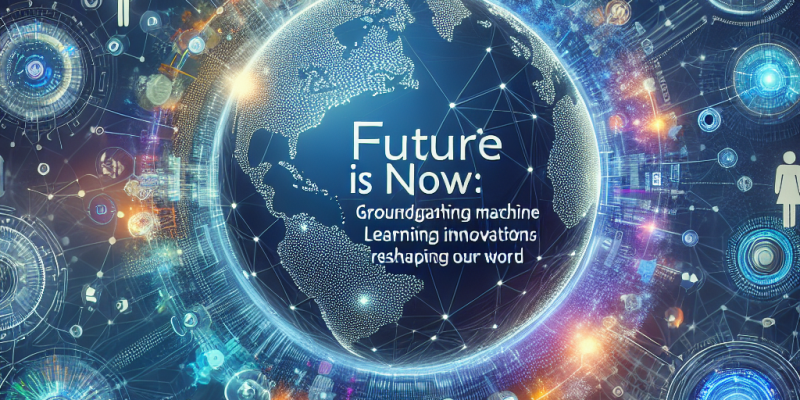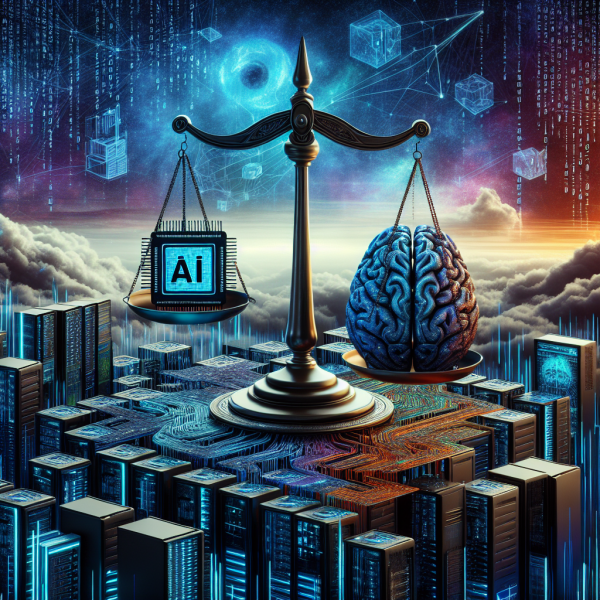The Future is Now: Groundbreaking Machine Learning Innovations Reshaping Our World

As we progress through the 21st century, the fusion of technology and our daily lives has become more pronounced than ever. At the forefront of this transformation is machine learning (ML), a subset of artificial intelligence that empowers systems to learn from data and improve over time without being explicitly programmed. The implications of these innovations are profound, reshaping industries, redefining how we interact, and even influencing societal norms. Below, we explore some of the groundbreaking machine learning advancements that are shaping our present and paving the way for our future.
1. Healthcare Revolutionized
One of the most significant impacts of machine learning is in healthcare. From predictive analytics to personalized medicine, the advancements are nothing short of revolutionary. Algorithms can now analyze vast datasets of patient records to predict disease outbreaks, identify potential health risks, and aid in early diagnosis. For instance, deep learning models can detect anomalies in medical imaging with accuracy that often surpasses that of human clinicians.
Moreover, ML innovations are tailing personalized treatment plans by analyzing how individuals respond to specific medications. By using genetic data and lifestyle information, healthcare providers can now tailor therapies to maximize efficacy and minimize side effects, leading to better patient outcomes.
2. Transforming Education
Machine learning is also reshaping the educational landscape. Intelligent tutoring systems adapt to the learning speed and style of each student, offering personalized resources and feedback. For instance, platforms that incorporate natural language processing (NLP) can provide real-time assistance to students, answering questions and guiding them through complex concepts.
Additionally, predictive analytics can identify at-risk students and suggest timely interventions, ensuring that no learner is left behind. As the education sector increasingly adopts these technologies, we can expect a more inclusive and effective learning environment.
3. Enhancing Financial Services
The finance industry has long been an early adopter of machine learning. Today, algorithms are employed for everything from fraud detection to algorithmic trading. By analyzing transaction data, machine learning models can identify unusual patterns and flag potential fraud in real-time, protecting both consumers and financial institutions.
Furthermore, robo-advisors utilize ML to analyze market trends and individual investment preferences, providing personalized financial advice with minimal human intervention. As a result, these innovations are making financial planning more accessible, enabling a broader demographic to engage in informed investing.
4. Smart Cities and Transportation
Urbanization has led to increased demands on infrastructure, and machine learning is a key component in creating smarter cities. From traffic management systems that predict congestion to environmental monitoring tools that analyze air quality, ML is helping urban planners make more informed decisions.
Autonomous vehicles represent one of the most exciting intersections of ML and transportation. By processing real-time data from various sensors, these vehicles can navigate their environment, avoid obstacles, and even handle complex driving scenarios. While full-scale adoption still faces regulatory and technological hurdles, pilot programs are already demonstrating the potential of ML in reducing accidents and improving traffic flow.
5. Ethical Considerations and Challenges
Despite the extraordinary benefits that machine learning offers, it is essential to address ethical considerations and challenges that accompany these technologies. Issues such as data privacy, algorithmic bias, and transparency are critical to ensure that innovations are equitable and do not reinforce existing societal inequalities.
As organizations rush to implement machine learning solutions, there is a growing call for frameworks and guidelines that promote ethical AI practices. Ensuring responsible use—rooted in fairness, accountability, and transparency—will be crucial for fostering public trust in these groundbreaking innovations.
Conclusion
The innovations driven by machine learning are not merely visions of the future; they are changing our world today. From health care and education to finance and transportation, the impact of these technologies is expansive and profound. However, as we continue to integrate machine learning into the fabric of society, it is vital to navigate the accompanying ethical challenges carefully.
The future is indeed now, and with it comes the responsibility to shape it thoughtfully. Embracing these innovations will require collaboration among technologists, policymakers, and the public to realize their full potential while ensuring a fair and ethical implementation. As we stand at this crossroads, the choices we make in harnessing machine learning will undoubtedly define our trajectory in the years to come.














